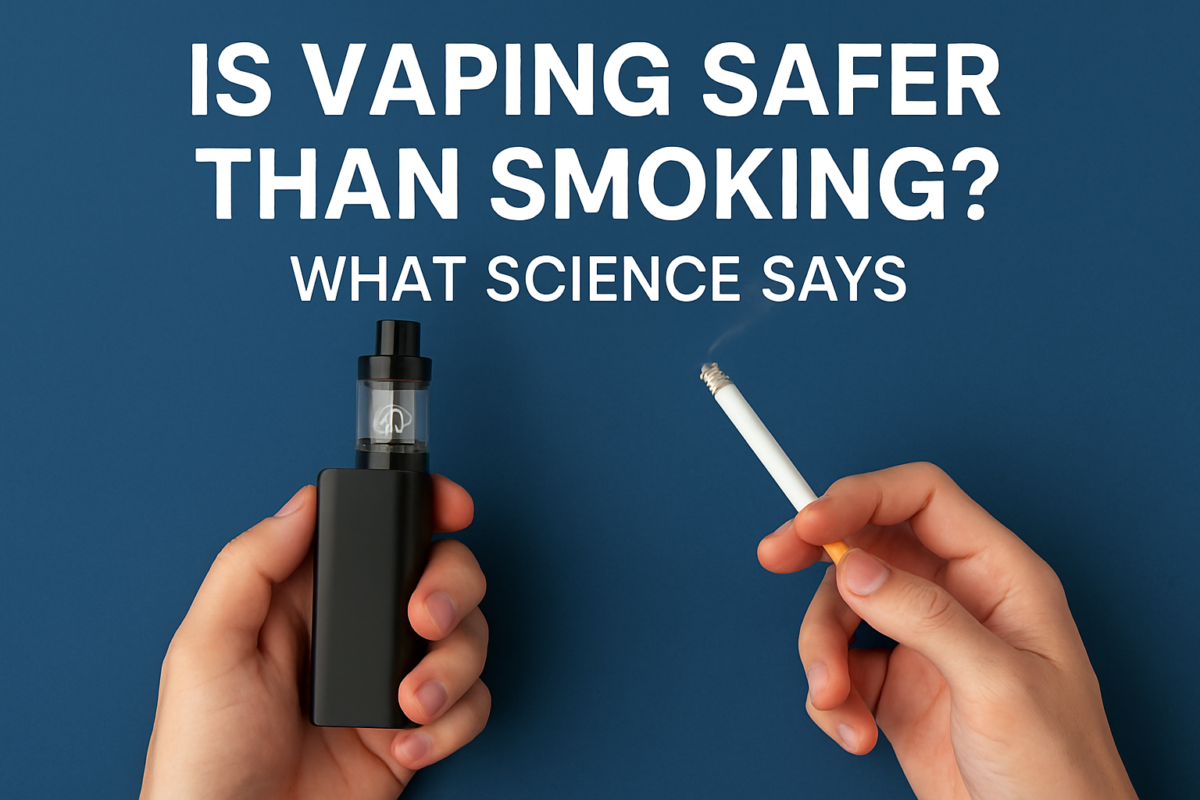Are There Any Health Risks Associated with Vaping? Vaping has become very popular in recent years as an alternative to smoking cigarettes. Many people wonder: Are there any health risks associated with vaping? This is an important question because understanding the risks helps you make better choices for your health.
In this blog post, we will look closely at what vaping is, the possible health risks, and how to vape safely if you decide to try it. We will also share helpful resources and tips for anyone interested in vaping.
What Is Vaping?
Vaping means breathing in vapor created by an electronic cigarette or similar device. These devices heat up a liquid called e-liquid or vape juice, which usually contains nicotine, flavorings, and other chemicals. When heated, the liquid turns into a vapor that you inhale.
Many people use vaping to help quit smoking or just because they enjoy it. But it’s important to know what goes into the vapor and how it might affect your health.
Are There Any Health Risks Associated with Vaping?
1. Nicotine Addiction
Most vape juices contain nicotine, which is the same addictive chemical found in cigarettes. Nicotine can make it hard to stop vaping once you start. It can also affect brain development in young people.
Even if you don’t smoke cigarettes, vaping with nicotine can be risky because it creates a strong habit.
2. Possible Lung Problems
Some studies have found that vaping can cause lung irritation and breathing problems. Chemicals in vape juice and flavorings might harm your lungs, especially if you vape a lot or use products from unknown sources.
There have been cases of a serious lung illness called EVALI (E-cigarette or Vaping Associated Lung Injury), mostly linked to vaping illegal or black-market products.
3. Chemical Exposure
Vaping liquids contain various chemicals like propylene glycol and glycerin, which are generally safe to eat but their effects when inhaled are still being studied. Some flavorings, when heated, may produce harmful substances.
4. Heart Risks
Nicotine and some other chemicals in vaping liquids can raise your heart rate and blood pressure. This might increase the risk of heart disease over time, especially if you have other health issues.
How Does Vaping Compare to Smoking?
While vaping is not risk-free, many experts agree it is less harmful than smoking traditional cigarettes because it does not involve burning tobacco, which releases many dangerous chemicals.
If you are a smoker trying to quit, switching to vaping can be a step toward better health. However, if you don’t smoke, starting vaping is not recommended.
Can Vaping Help You Quit Smoking?
Many people use vaping as a tool to stop smoking cigarettes. Some research shows vaping can help smokers reduce or quit cigarettes, but it works best when combined with support like counseling.
If you want to try vaping to quit smoking, it’s best to choose regulated products and talk to a healthcare provider.
What Are Some Safer Vaping Practices?
- Use reputable products: Buy vape juices and devices from trusted sources like VapeFlows Shop to avoid dangerous or fake products.
- Avoid black-market products: These might contain harmful chemicals.
- Don’t vape if you’re underage: Nicotine harms brain development in teens and children.
- Limit how much you vape: Avoid heavy or constant use to reduce risks.
- Keep your device clean: Proper maintenance reduces risk of infection or device failure.
Internal Link: Explore Vape Products Safely
Looking for quality vaping devices and e-liquids? Check out the latest and safest products at VapeFlows Shop.
Common Myths About Vaping and Health
Myth 1: Vaping is completely safe.
Fact: Vaping has fewer harmful chemicals than smoking but is not without risks. Some chemicals in vape juice are still under study.
Myth 2: Vaping doesn’t cause addiction.
Fact: Most vape juices contain nicotine, which is highly addictive.
Myth 3: Vaping is just water vapor.
Fact: The vapor contains nicotine and other chemicals, not just water.
What Do Experts Say About Vaping Health Risks?
Organizations like the Centers for Disease Control and Prevention (CDC) and the World Health Organization (WHO) recognize that vaping poses health risks but may be less harmful than smoking.
For more expert information, visit the CDC vaping page.
Environmental Impact of Vaping
Disposable vape devices and cartridges create electronic waste that can harm the environment if not disposed of properly. It’s important to recycle vape batteries and devices when possible.
Who Should Avoid Vaping?
- Children and teens
- Pregnant women
- People with heart or lung conditions
- Non-smokers
How to Know If Vaping Is Right for You
If you’re a smoker thinking about vaping to quit, talk to your doctor. If you’ve never smoked, it’s better not to start vaping.
Remember, the safest option is not to inhale nicotine or other chemicals.
Call to Action
If you decide to explore vaping, make sure to choose safe and trusted products. Visit VapeFlows Shop to find quality vaping devices, e-liquids, and accessories all tested for safety.
Related External Links for Further Reading
- CDC – Electronic Cigarettes
- WHO – Tobacco and Nicotine
- American Lung Association – Vaping and Lung Health
- Harvard Health – Is vaping safer than smoking?
This blog post answers the question Are There Any Health Risks Associated with Vaping? in a clear, simple way. It helps readers understand the risks and make informed decisions.


